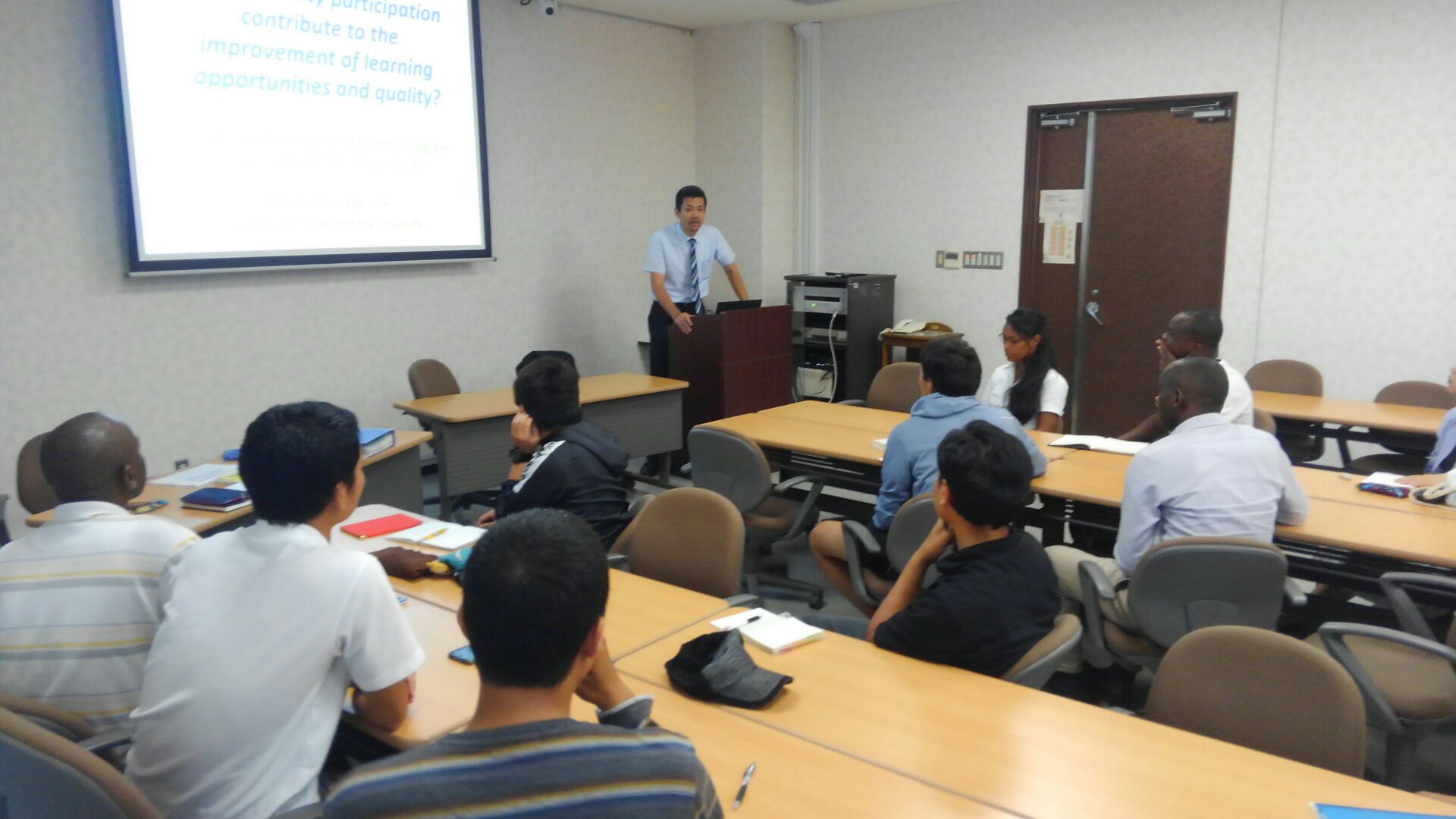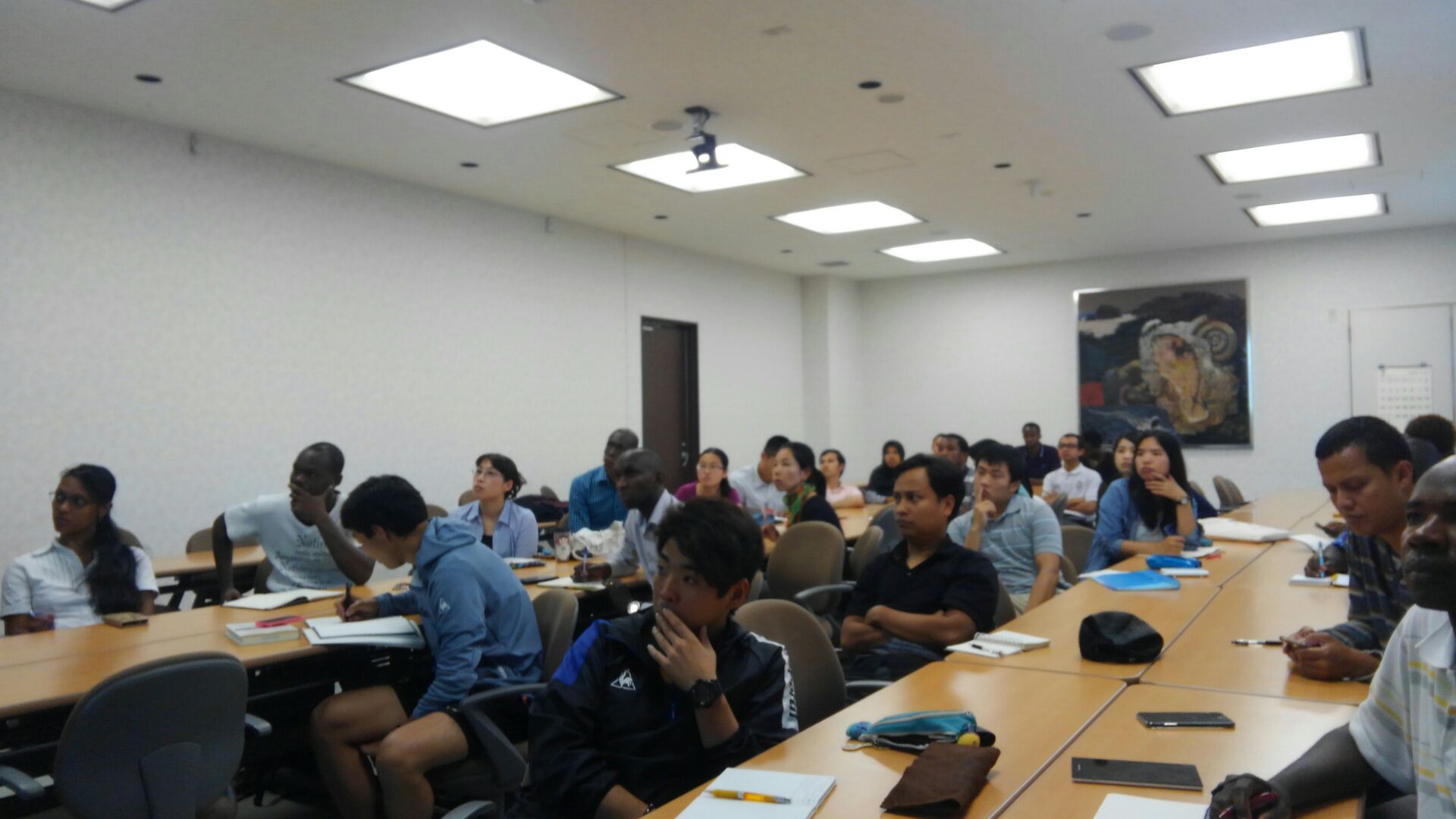【Seminar report】The 371th IDCE Seminar
July 12, 2017, 18:00-19:40 IDEC Large Conference Room, number of participants 31
Mr. Nobuhiro Kuieda, JICA senior advisor (basic education), who is in charge of JICA-supported participatory school-based management projects in Francophone Africa, so called, ‘School for All’ project, came to Hiroshima University to share his experience. He emphasized the following points;
(1) Community members and parents with low literacy have strong demand for having children equipped with basic literacy and numeracy.
(2) Project interventions such as ‘democratic elections’, PDCA cycle of school action plan, monitoring system, are based on reflections from the past failures: only traditional authorities or those who are close to head teachers are chosen as representatives of school management committee; no transparency in terms of the process and the results of school action plans; lack of information sharing beyond each school management committee and attention by local education officers.
(3) ‘Minimum Package for Quality learning’ has been developed in a combined form of remedial class (learning time), math exercise books (tool/environment), and training of facilitators (teaching quality) in order to respond to community and parents’ demand.
During Q and A, the following questions were raised from the floor: challenges in nationwide scale up and consideration for sustainability; how to involve community members without school children; relationship between school management committee and (central and local) administration; teachers’ feelings for improved learning outcome through remedial classes without teachers; differences between public and private schools in terms of engagement with project activities; why numeracy was addressed prior to literacy. Mr. Kunieda responded to each question with detailed explanations.
On following day, Mr. Kunieda attended my class ‘Case studies in international cooperation in education’ and had interviews and discussions with my students. The followings were discussed intensively: what strategies were used to motivate stakeholders toward project activities; how to get understanding of traditional authorities such as village chief in implementing democratic elections; what were successful factors of the model; how participation of children with disabilities and their parents was from the viewpoint of inclusiveness; what roles JICA has played in the project. This interview allowed us to have deeper understanding of ‘School for All’ project, which are not available on reference documents and other sources.
(Kazuro Shibuya, Development of Educational Development and Cultural and Regional Studies)

Mr. Kunieda talking to students

Many students raised questions actively

 Home
Home